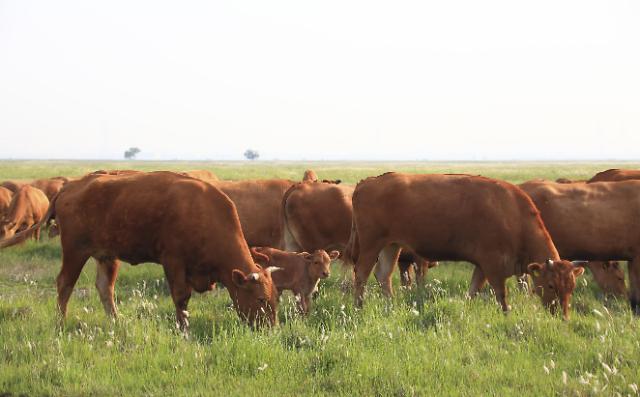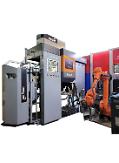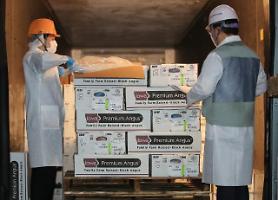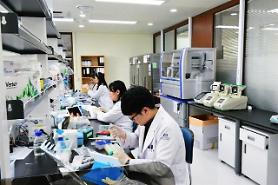
[Gettyimages Bank]
A research team led by Lee Hak-gyo, a professor of animal life engineering at Jeonbuk National University has acquired a method to distinguish "low-carbon cow" with a system that tracks and predicts cow carbon footprints with genetic information big data.
Lee, who heads Melliens, a teacher start-up company, has analyzed the genetic information and traits of 20,000 calves with low carbon emissions among 500,000 cows for a decade with a genome-based beef tracking platform. The carbon footprint required to produce one kilogram of beef using low carbon cows was 8.9 kg, compared to regular beef's 25.5 kg.
Genetic information can be checked during the calf period to select excellent breeding animals, the university said, adding that genetic traits can be passed on to future generations through breeding and improvement, leading to low-carbon customized breeding and sustainable reduction in carbon footprint.
The amount of greenhouse gas generated in South Korea's livestock sector increased from 5.8 million tons in 1990 to 9.4 million tons in 2018, according to Jeonbuk National University. "We will contribute to human society by making efforts to grow into a company operating a global livestock carbon-neutral convergence platform through industrialization, not just research," Lee said in a statement on May 20.
Concord Ventures, an investment banking firm headquartered near Seattle, has participated in Lee's project. Concord Ventures CEO Salim Dada was quoted as saying that the project would make a positive and active contribution to global livestock carbon neutrality.
Copyright ⓒ Aju Press All rights reserved.



